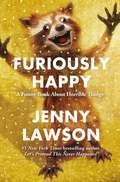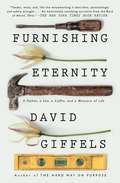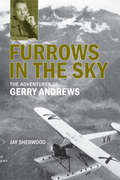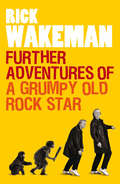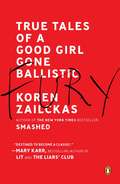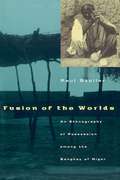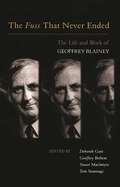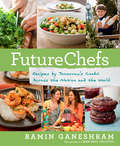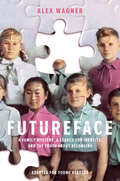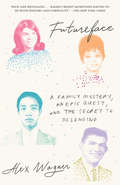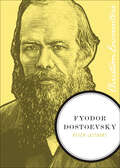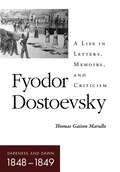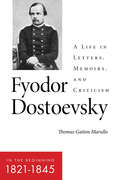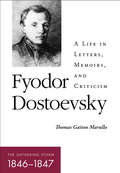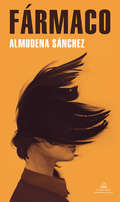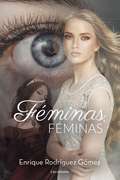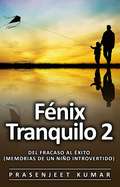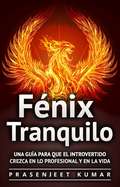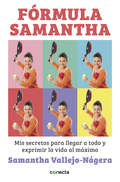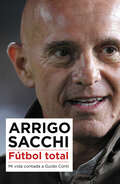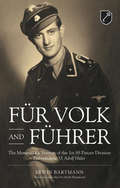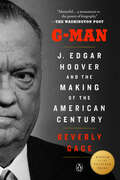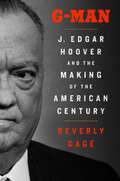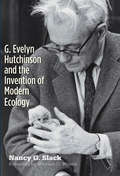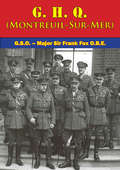- Table View
- List View
Furiously Happy: A Funny Book About Horrible Things
by Jenny LawsonIn Furiously Happy, #1 New York Times bestselling author Jenny Lawson explores her lifelong battle with mental illness. A hysterical, ridiculous book about crippling depression and anxiety? That sounds like a terrible idea.<P><P> But terrible ideas are what Jenny does best.<P> As Jenny says:<P> "Some people might think that being 'furiously happy' is just an excuse to be stupid and irresponsible and invite a herd of kangaroos over to your house without telling your husband first because you suspect he would say no since he's never particularly liked kangaroos. And that would be ridiculous because no one would invite a herd of kangaroos into their house. Two is the limit. I speak from personal experience. My husband says that none is the new limit. I say he should have been clearer about that before I rented all those kangaroos. <P> "Most of my favorite people are dangerously fucked-up but you'd never guess because we've learned to bare it so honestly that it becomes the new normal. Like John Hughes wrote in The Breakfast Club, 'We're all pretty bizarre. Some of us are just better at hiding it.' Except go back and cross out the word 'hiding.'"<P> Furiously Happy is about "taking those moments when things are fine and making them amazing, because those moments are what make us who we are, and they're the same moments we take into battle with us when our brains declare war on our very existence. It's the difference between "surviving life" and "living life". It's the difference between "taking a shower" and "teaching your monkey butler how to shampoo your hair." It's the difference between being "sane" and being "furiously happy."<P> Lawson is beloved around the world for her inimitable humor and honesty, and in Furiously Happy, she is at her snort-inducing funniest. This is a book about embracing everything that makes us who we are - the beautiful and the flawed - and then using it to find joy in fantastic and outrageous ways. Because as Jenny's mom says, "Maybe 'crazy' isn't so bad after all." Sometimes crazy is just right.
Furnishing Eternity: A Father, a Son, a Coffin, and a Measure of Life
by David Giffels“Giffels does well as a voice of the Midwest…but this is for everyone.” —Library Journal From the acclaimed author of The Hard Way on Purpose, a vibrant, heartfelt memoir about confronting mortality, surviving loss, finding resilience in one’s Midwest roots and seeking a father’s wisdom through an unusual woodworking project—constructing his own coffin.David Giffels grew up fascinated by his father’s dusty, tool-strewn workshop and the countless creations—some practical, others fantastical—it inspired. So when he enlisted his eighty-one-year-old dad to help him with the unusual project of building his own casket, he thought of it mostly as an opportunity to sharpen his woodworking skills and to spend time together. But life, as it usually does, had other plans. The unexpected deaths of his mother and, a year later, his best friend, coupled with the dawning realization that his father wouldn’t be around forever for such offbeat adventures—and neither would he—led to a harsh confrontation with mortality and loss. Over the course of several seasons, Giffels returned to his father’s barn in rural Ohio, a place cluttered with heirloom tools, exotic wood scraps, and long memory, to continue a pursuit that grew into a meditation on grief and optimism, a quest for enlightenment, and a way to cherish time with an aging parent. With wisdom and humor, Giffels grapples with some of the hardest questions we all face as he and his father saw, hammer, and sand their way through a year bowed by loss. Furnishing Eternity is the story of a family searching for hope in its roots and the unexpected truths we arrive at in the process of creating and constructing. Heartfelt, unvarnished, and piercing with insight, this powerful memoir is Giffels’s most intimate exploration yet of the values and traditions that illuminate the Midwest.
Furrows in the Sky: The Adventures of Gerry Andrews
by Jay SherwoodGerry Andrews (1903–2005) had many adventures in his 102 years. He was a rural school teacher, a forester, a soldier and a surveyor. His developments in aerial photography dramatically changed forestry in BC in the late 1930s and assisted the Allies in the D-Day landings. As BC's surveyor-general from 1951 to 1968, he supervised the mapping of the province's large construction projects, often using aerial photography. He referred to the process of mapping the landscape in an airplane as "ploughing photographic furrows up and down the sky at 16,000 feet".
Further Adventures of a Grumpy Old Rock Star
by Rick WakemanWhat do Postman Pat, Tommy Cooper, Norman Wisdom and George Best have in common with being abandoned in a Costa Rican jungle after a severe bout of flatulence? Indeed, how are they also connected to trying to buy an Australian brewery just to get a beer, owning twenty-two cars, an American soccer team and a Swiss mail-order pornography company?The common feature is of course a certain Richard Wakeman.The Further Adventures of a Grumpy Old Rock Star takes you, the privileged reader, on a trip of absurd excess, a cultural car crash of side-splitting hilarity and an unforgettable glimpse (again) into the life of one of Britain's most legendary showmen, rock stars and all-time great raconteurs.
Fury: True Tales of a Good Girl Gone Ballistic
by Koren ZailckasThe author of the New York Times bestseller Smashed "puts a voice to a generation with their own issues with rage" (San Francisco Book Review)Written when she was just twenty-three, Koren Zailckas's memoir Smashed: Story of a Drunken Girlhood became an iconic, bestselling account of her years as a teenaged blackout binge drinker. Fury picks up where Smashed left off, revealing the toxic legacy of Koren's sobriety. Without alcohol to blur her perspective, Koren finds that her good-girl personality is nothing more than a shroud for unacknowledged anger with the potential to wreak havoc on her life. A sophisticated and deeply personal chronicle, Fury hits a cultural nerve. Blazing a trail toward a healthy, empowered identity, Zailckas will astonish and free a generation of young women.
Fusion of the Worlds: An Ethnography of Possession among the Songhay of Nigeria
by Paul StollerStoller (anthropology, West Chester U.) lived amongst the Songhays intermittently for 18 years. Here he presents a vivid view of a possession cult from an insider's perspective as he recounts the many possession ceremonies he took part in during a drought in 1984.
Fuss That Never Ended: The Life and Work of Geoffrey Blainey
by Stuart Macintyre Deborah Gare Geoffrey Bolton Tom StannageIt is time to reassess the work of Geoffrey Blainey, and consider his role in Australian history, politics and public life.Geoffrey Blainey has steered Australian history into the nation's conversation. No one would dispute that he is a courageous public intellectual, a writer of rare grace and a master storyteller. And he has indeed provoked a rare fuss, both public and professional, with some of his comments on Asian immigration and Aboriginal land rights. Blainey has challenged the academic history profession, not only with his ideas but also by his practice. A brilliant student, he looked set for Oxford but chose instead the austere west coast of Tasmania for his postgraduate research. For the next decade he earned a living with his pen. And instead of political history in the traditional academic mould, he wrote corporate histories that dispensed with footnotes.Always probing and speculative, Blainey has dislodged many of the keystones in our understandings of Australia's past. He was one of the first to write about the expansive social history of this land before 1788; he questioned whether Botany Bay was founded primarily as a convict colony; he argued that the Eureka uprising had economic rather than political causes; and he identified sport as a neglected key to the Australian character. His controversial views earned such newspaper headlines as 'Brave Man Set Upon by Thugs for Telling Truth'.In The Fuss That Never Ended a lively and distinguished assembly of fellow historians—of various ages, interests and political stances—take a fresh look at Blainey's remarkable and sometimes controversial career.
FutureChefs: Recipes by Tomorrow#s Cooks Across the Nation and the World
by Ramin Ganeshram Jean Paul VellottiA 2015 IACP Cookbook Awards Winner: Children, Youth and FamilyA curated collection of 150 recipes drawn from the experience and kitchens of young cooks all over America, FutureChefs brings real, cooking-obsessed tweens and teens to the page as relatable characters who span a diverse social and cultural experience. Here, in rich, inspiring detail, is the ethnoculinary America of the future. Veteran journalist and trained chef Ramin Ganeshram has crafted profiles of serious young cooks who run the gamut of experience, ethnic, and socioeconomic backgrounds to create an inspiring prism through which readers might see what's ahead in America's food culture. Whether they've taken to it because of necessity, inspiration, or sheer passion, these are kids, teens, and tweens who are very serious about food. Featuring recipes from young celebrity chefs Logan Guleff, winner FOX's MasterChef Jr, and Kid Chef Eliana de Las Casas, Daniel Hamilton, Alessandra Ciuffo, and Jack Witherspoon from Food Network's Rachael versus Guy, as well as the White House's Healthy Lunchtime Challenge winners Sydney Michael Brown and Haile Thomas.This is a generation more interested in hands-on cooking than ever, but they're lacking material that treats them as a serious part of cooking culture; FutureChefs is the perfect vehicle.
Futureface (Adapted for Young Readers): A Family Mystery, a Search for Identity, and the Truth About Belonging
by Alex WagnerFor anyone who is interested in genealogy and DNA profiling, this is the story of a journalist who travels the world to solve the mystery of her ancestry, facing questions about American identity and what it means to belong. Now adapted for young readers from the acclaimed adult memoir.Who are my people? Where am I from? With a Burmese mother and a white American father, Alex Wagner grew up thinking of herself as a "futureface"--an example of what the mixed-race future of America would look like. Her father's ancestors immigrated to the United States from Ireland and Luxembourg. Her mother fled Burma--now Myanmar--with her family in the 1960s.When Alex learns that her ancestry might be more mysterious than she believed, she becomes obsessed with learning everything there is to know about her ethnic and racial history. Her journey takes her from Burma to Luxembourg, from birth records written on banana leaves to high-tech genetic labs and online ancestry profiles.Through a blend of history, science, and sociology, Alex tries to solve the mysteries of her family and what it means to be American. What makes us think of certain people as "us" and others as "them"? In a time of conflict over who we are as a country, she tries to find the story where we all belong.Praise for the adult edition of Futureface"A thoughtful, beautiful meditation on what makes us who we are." --Barack Obama"Smart, timely, and moving." --Eddie Huang, bestselling author of Fresh Off the Boat"A rich and revealing memoir." --The New York Times
Futureface: A Family Mystery, an Epic Quest, and the Secret to Belonging
by Alex Wagner<P>An acclaimed journalist travels the globe to solve the mystery of her ancestry, confronting the question at the heart of the American experience of immigration, race, and identity: Who are my people? <P>Alex Wagner has always been fascinated by stories of exile and migration. Her father’s ancestors immigrated to the United States from Ireland and Luxembourg. Her mother fled Rangoon in the 1960s, escaping Burma’s military dictatorship. <P>In her professional life, Wagner reported from the Arizona-Mexico border, where agents, drones, cameras, and military hardware guarded the line between two nations. She listened to debates about whether the United States should be a melting pot or a salad bowl. <P>She knew that moving from one land to another—and the accompanying recombination of individual and tribal identities—was the story of America. And she was happy that her own mixed-race ancestry and late twentieth-century education had taught her that identity is mutable and meaningless, a thing we make rather than a thing we are. <P>When a cousin’s offhand comment threw a mystery into her personal story–introducing the possibility of an exciting new twist in her already complex family history—Wagner was suddenly awakened to her own deep hunger to be something, to belong, to have an identity that mattered, a tribe of her own. <P>Intoxicated by the possibility, she became determined to investigate her genealogy. So she set off on a quest to find the truth about her family history. <P>The journey takes Wagner from Burma to Luxembourg, from ruined colonial capitals with records written on banana leaves to Mormon databases and high-tech genetic labs. <P>As she gets closer to solving the mystery of her own ancestry, she begins to grapple with a deeper question: Does it matter? Is our enduring obsession with blood and land, race and identity, worth all the trouble it’s caused us? <P>The answers can be found in this deeply personal account of her search for belonging, a meditation on the things that define us as insiders and outsiders and make us think in terms of “us” and “them.” <P>In this time of conflict over who we are as a country, when so much emphasis is placed on ethnic, religious, and national divisions, Futureface constructs a narrative where we all belong.
Fyodor Dostoevsky (Christian Encounters)
by Peter J. LeithartIn his twenties, Fydor Dostoevsky, son of a Moscow doctor, graduate of a military academy, and rising star of Russian literature, found himself standing in front of a firing squad, accused of subversive activities against the Russian Tsar. Then the drums rolled, signaling that instead he was to be exiled to the living death of Siberia. Siberia was so cold the mercury froze in the thermometer. In prison, Dostoevsky was surrounded by murderers, thieves, parricides, and brigands who drank heavily, quarreled incessantly, and fought with horrible brutality. However, while "prisoners were piled on top of each other in the barracks, and the floor was matted with an inch of filth," Dostoevsky learned a great deal about the human condition that was to impact his writing as nothing had before. To absorb Dostoevsky's remarkable life in these pages is to encounter a man who not only examined the quest of God, the problem of evil, and the suffering of innocents in his writing but also drew inspiration from his own deep Christian faith in giving voice to the common people of his nation... and ultimately the world.
Fyodor Dostoevsky–Darkness and Dawn: A Life in Letters, Memoirs, and Criticism (NIU Series in Slavic, East European, and Eurasian Studies)
by Thomas Gaiton MarulloFyodor Dostoevsky—Darkness and Dawn (1848–1849), the third and final volume on the writer's childhood, adolescence, and youth, seeks to disclose, in a detailed and intimate way, Dostoevsky's last two years before his exile to Siberia. Together with the first two volumes, it attempts to present for the first time a complete and congruent picture of the writer's first twenty-eight years. Thomas Gaiton Marullo first examines diverse responses of the Russian church, state, and citizens to the French socialists, in particular, Charles Fourier, and to the revolutions of 1848 before he moves to lively debates on Dostoevsky's socialism and new attacks on his writings. He then considers the dynamics of the Petrashevsky and Durov circles; fresh assaults on Dostoevsky's works; and the increasing desperation of the writer himself, particularly with Andrei Kraevsky. In the final sections of the book, Marullo sheds light on Dostoevsky's readings of Belinsky's letter to Gogol, the arrests of Petrashevsky and company, including Dostoevsky and his brothers, Andrei and Mikhail, as well as his responses to members of the Investigative Commission for the Petrashevsky Affair, his eight months in prison in the Peter-Paul Fortress, his mock execution on the Semyonovsky Parade Ground, and his departure to exile in Siberia.This volume will be of interest to scholars, students, and devotees not only of Dostoevsky, but also of Russian and European history, culture, and civilization.
Fyodor Dostoevsky—In the Beginning: A Life in Letters, Memoirs, and Criticism (NIU Series in Slavic, East European, and Eurasian Studies)
by Thomas MarulloMore than a century after his death in 1881, Fyodor Dostoevsky continues to fascinate readers and reviewers. Countless studies of his writing have been published—more than a dozen in the past few years alone. In this important new work, Thomas Marullo provides a diary-portrait of Dostoevsky's early years drawn from the letters, memoirs, and criticism of the writer, as well as from the testimony and witness of family and friends, readers and reviewers, and observers and participants in his life. Marullo's exhaustive search of published materials on Dostoevsky sheds light on many unexplored corners of Dostoevsky's childhood, adolescence, and youth. Speakers of excerpts are given maximum freedom: Anything they said about the writer—the good and the bad, the truth and the lies—are included, with extensive footnotes providing correctives, counter-arguments, and other pertinent information. The first part of this volume, "All in the Family," focuses on Dostoevsky's early formation and schooling, i.e., his time in city and country, and his ties to his family, particularly his parents. The second section, "To Petersburg!," features Dostoevsky's early days in Russia's imperial city, his years at the Main Engineering Academy, and the death of his father. The third part, "Darkness before Dawn," deals with the writer's youthful struggles and strivings, culminating in the success of his work, Poor Folk. This clear and comprehensive portrait of one of the world's greatest writers will appeal to students, teachers, and scholars of Dostoevsky's early life, as well as general readers interested in Dostoevsky, literature, and history.
Fyodor Dostoevsky—The Gathering Storm: A Life in Letters, Memoirs, and Criticism (NIU Series in Slavic, East European, and Eurasian Studies)
by Thomas Gaiton MarulloThis second book in a three-volume work on the young Fyodor Dostoevsky is a diary-portrait of his early years drawn from letters, memoirs, and criticism of the writer, as well as from the testimony and witness of family and friends, readers and reviewers, and observers and participants in his life. The result of an exhaustive search of published materials on Dostoevsky, this volume sheds crucial light on the many unexplored corners of Dostoevsky's life in the time between the success of his first novel, Poor Folk, and the failure of his next four works. <P><P>Thomas Gaiton Marullo lets the original writers speak for themselves—the good and the bad, the truth and the lies—and adds extensive notes with correctives, counterarguments, and other pertinent information.Marullo looks closely at Dostoevsky's increasingly tense ties with Vissarion Belinsky, Nikolai Nekrasov, Ivan Turgenev, and other figures of the Russian literary world. He then turns to the individuals who afforded Dostoevsky security and peace amid the often negative reception from fellow writers and readers of his early fiction. Finally, Marullo shows us Dostoevsky's break with the Belinsky circle; his struggle to stay afloat emotionally and financially; and his determination to succeed as a writer while staying true to his vision, most notably, his insights into human psychology that would become a hallmark of his later fiction. This clear and comprehensive portrait of one of the world's greatest writers provides a window into his younger years in a way no other biography has to date.
Fármaco
by Almudena SánchezUn testimonio sobre la depresión escrito sin tabúes, con humor y cercanía por una de las voces más especiales de su generación. «Almudena Sánchez hace música con los añicos de ese cristal delicado del que estamos hechos.»Elvira Navarro Este es el relato de una explosión, del momento en que la tristeza dinamitó todas las certezas de la autora y decidió instalarse en su cuerpo. En Fármaco encontraréis un cerebro que quería desaparecer y una escritora que lo agarró y buscó cómos y porqués entre recuerdos, conductos y cavidades. Aquí hay infancia y hay madre, una niñez en escuelas de Mallorca y en campos de Castilla; hay pastillas naranjas que te ponen en pausa y pastillas rojas que te lanzan a la estratosfera; hay sueños, pesadillas y deseos: «ojalá la depresión se quitara desnudándonos, tímidamente y despacio». Y libros. Hay muchos libros, historias para escapar y otras para entender qué pasaba en su cabeza. Aquí la literatura es bálsamo, esperanza y salvación. La crítica ha dicho...«"Este libro es para personas tristes con sentido del humor", escribe Almudena Sánchez. Desde luego, Fármaco no es un texto para personas alegres que carezcan de él. El relato de la depresión se solapa con los recuerdos de infancia a los treinta y tres años. Sánchez es una Charlie Rivel y una Jesucrista Superestar que escribe, con ligereza, sobre un peso insoportable, y nos regala un libro honesto, limpio y maravilloso.»Marta Sanz «Como quien afila una mina de lápiz muy oscura para hacerla punzante y obtiene a la vez virutas de luz, así escribe en este libro Almudena Sanchez. No necesita excederse en la crudeza ni tampoco idealizar, escribe con distancia y temblor, abate cada prejuicio, enciende sombras.»Belén Gopegui «Un libro que se hace al mismo tiempo que la vida. En Fármaco cada símbolo esconde una historia, con su pasado y su presente. En la prosa de Almudena Sánchez, el futuro es la belleza.»Elena Medel Sobre La acústica de los iglús se dijo:«Sánchez salta a la comba contra la desdicha, pero no es un juego. Ella escribe con un esmerado desorden. ¿Con el esmerado desorden de los que intentan qué? Es posible que no envejecer.»Isabel González, El Mundo «Si acaso es posible la quimera de una adolescencia adulta, de una madurez jovial, los relatos de Almudena Sánchez apostarían todo a esa ensoñación, pues en ellos encontramos la mirada única de una narradora que templa el estilo para poner del revés la trama mágica del mundo.»Eñe «Pero su humor no es sólo satírico, sino que emplea la comedia y el absurdo para crear un mundo literario propio, distinto a cualquiera que hayamos leído hasta ahora. En este mundo particular, la narrativa se mezcla con la lírica y se dota de tantos matices que elcrítico literario corre el riesgo de perderse en calificativos.»Ricardo Lladosa, Heraldo de Aragón
Féminas, féminas
by Enrique Rodriguez GomezEl feminismo no empezó ayer. " Mujeres fuertes y con valores propios siempre las ha habido. Un grupo de ellas dan fe de que esto ha sido así y se demuestra eneste relato. No se juzga lo que han sido, se valora lo que hicieron. Más o menos importantes, pero siendo ellas. <P><P>Desde el heroísmo de alguna, hasta la presunción de otra. Pero todas ellas haciendo aquello que no era negociable. En absoluto sumisas, siempre valientes. A veces, para bien, otras, no tanto. <P>Historias nada iguales, pero fueron las suyas. Estos relatos son hechos reales, las protagonistas los vivieron. No las juzguemos, solo entendámoslas.
Fénix Tranquilo 2: Del Fracaso al Éxito (Memorias de un Niño Introvertido)
by Prasenjeet KumarCelebrando al Niño Tranquilo: Una lectura obligada para cada padre, maestro, mentor y entrenador deportivo. De Prasenjeet Kumar, el autor de "Quiet Phoenix" ("Fénix Tranquilo"), surge una secuela que nadie que trata con niños Introvertidos debería perderse. El tema subyacente del libro es que, al igual que un Ave Fénix está programado para renacer de las cenizas de sus antepasados, sus lágrimas están destinadas a curar heridas, y simboliza la esperanza y optimismo imperecederos, así también su niño Tranquil está hecho para la persistencia, la creatividad y auto-disciplina, y para mostrar un don para el auto-aprendizaje, alta inteligencia emocional y un impecable sentido de responsabilidad moral. Con personajes de la vida real como la "Sra. Pecas", el "Sr. Ferrari Ruidoso" y la "Sra. Quita-lápices", este libro está dirigido a todos: Padres, maestros o entrenadores deportivos. Y si usted es un adulto introvertido, puede encontrar este libro útil para entenderse a sí mismo, su pasado y lo que quiere de la vida en el futuro.
Fénix Tranquilo: Una Guía Para Que el Introvertido Crezca En Lo Profesional y En la Vida
by Prasenjeet Kumar Marcela Gutiérrez Bravo y María Florencia LavoratoDespierta al Ave Fénix dentro de ti. Asciende en tu carrera. Logra crecimiento personal y desarrollo. En unas memorias, primeras en su tipo, sobre la vida de un abogado corporativo de una importante Firma Legal convertido en autor, Prasenjeet Kumar, comparte sus experiencias en una manera nunca antes expuesta en este género antes. Como la legendaria Ave Fénix levantándose de las cenizas "Fénix Tranquilo" es un manual de auto-ayuda específicamente hecho para alentar a todos los introvertidos o personas Tranquilas a levantarse literalmente de sus caídas, al recordarles constantemente que la introversión NO es una minusvalía de la cual estar avergonzado. De hecho, los introvertidos se supone que tengan sorprendentes poderes de concentración, escucha atenta y una habilidad para mantener profundas relaciones con amigos y clientes. >>> Sobre todo, "Fénix Tranquilo" es una increíble historia de cambio de carrera que Prasenjeet Kumar comparte, con ingenio y encanto, de la aventura de ser un Abogado Corporativo a convertirse en Autor-Emprendedor de Tiempo Completo usando su introversión como fuerza para superar los obstáculos.
Fórmula Samantha: Mis secretos para llegar a todo y exprimir la vida al máximo
by Samantha Vallejo-NágeraLa jurado de MasterChef, empresaria y madre Samantha Vallejo-Nágera nos desvela sus secretos para llegar a todo y exprimir la vida al máximo. «No puedes esperar a que la felicidad venga de fuera, o al menos no siempre. Hay que perseguirla, organizar tu vida para alcanzarla. Por eso la lleno de luz, de color, de motivos graciosos, de lugares con encanto, de gente vital. Porque quiero vivir la vida con entusiasmo, exprimiéndola a tope. Solo así merece ser vivida.»Samantha Vallejo-NágeraSamantha Vallejo-Nágera se define a sí misma como «empresaria y madre total». Empezó a los 25 años creando un servicio de catering que hoy es uno de los más prestigiosos de España y donde trabajan más de 40 personas. Es madre de familia numerosa, con cuatro hijos todavía pequeños. Y por si todo esto fuera poco, participa como jurado en el famoso programa de televisión MasterChef y es tremendamente activa en las redes sociales en las que ha conseguido infinidad de seguidores. Samantha reconoce que no le queda ni un minuto libre#, pero que su vida es muy divertida y apasionante. En Fórmula Samantha ella misma nos cuenta los secretos que le permiten llevar una vida plena con una actividad frenética: la importancia de la organización y de la administración del tiempo, la necesidad de contar con un buen equipo y de saber confiar y delegar en ellos y la salud y el ejercicio como ingredientes imprescindibles para el equilibrio personal. Porque, como bien sabe Samantha, compaginar una vida profesional trepidante con la felicidad y el equilibrio personal es posible.
Fútbol total: Mi vida contada a Guido Conti
by Guido Conti Arrigo Sacchi«El fútbol se juega principalmente con la cabeza, y así se ganan los partidos; los pies vienen mucho después»Arrigo Sacchi La historia del hombre que nunca jugó al fútbol de manera profesional, cuya habilidad para dirigir a equipos repletos de estrellas terminó por convertirle en el entrenador de mayor prestigio en el mundo entero en la década de los 80.Después de vencer dos veces consecutivas al todopoderoso AC Milan cuando era entrenador del modesto Parma, Silvio Berlusconi le eligió para liderar la revolución de su equipo. Los primeros resultados estuvieron muy alejados de lo prometido, pero en cuanto las estrellas del Milán entendieron los conceptos de Sacchi, conocimos a uno de los mejores equipos de la historia del fútbol mundial, consiguiendo títulos consecutivos en Europa e Italia.
Für Volk and Führer: The Memoir of a Veteran of the 1st SS Panzer Division Leibstandarte SS Adolf Hitler
by Erwin Bartmann Derik HammondOne German soldier’s experience in the deadly crucible of World War II combat. Like many Germans, Berlin schoolboy Erwin Bartmann fell under the spell of the Zeitgeist cultivated by the Nazis. Convinced he was growing up in the best country in the world, he dreamt of joining the Leibstandarte, Hitler’s elite Waffen SS unit. Erwin fulfilled his dream on May Day 1941, when he walked into the Lichterfelde barracks in Berlin as a raw recruit. On arrival at the Eastern Front in late summer 1941, Erwin was assigned to a frontline communications squad. When the end of the Reich became inevitable, Erwin was forced to choose between a struggle for personal survival and the fulfillment of his SS oath of “loyalty unto death.” From the war on the southern sector of the Eastern Front to a bomb-shattered Berlin populated largely by old men and demoralized women, this candid eyewitness account offers a unique and sometimes surprising perspective on the life of a young Leibstandarte SS Adolf Hitler volunteer. “A valuable memoir, providing both a good account of the changing attitudes of the author, both towards the Nazi regime and the chances of final victory.” —History of War
G-Man (Pulitzer Prize Winner): J. Edgar Hoover and the Making of the American Century
by Beverly GageWinner of the 2023 Pulitzer Prize in BiographyWinner of the 2022 National Book Critics Circle Award in Biography, the 2023 Bancroft Prize in American History and Diplomacy, and the 43rd LA Times Book Prize in Biography | Finalist for the 2023 PEN/Jacqueline Bograd Weld Award for BiographyNamed a Best Book of 2022 by The Atlantic, The Washington Post and Smithsonian Magazine and a New York Times Top 100 Notable Books of 2022 &“Masterful…This book is an enduring, formidable accomplishment, a monument to the power of biography [that] now becomes the definitive work&”—The Washington Post&“A nuanced portrait in a league with the best of Ron Chernow and David McCullough.&”—The Wall Street JournalA major new biography of J Edgar Hoover that draws from never-before-seen sources to create a groundbreaking portrait of a colossus who dominated half a century of American history and planted the seeds for much of today's conservative political landscape.We remember him as a bulldog--squat frame, bulging wide-set eyes, fearsome jowls--but in 1924, when he became director of the FBI, he had been the trim, dazzling wunderkind of the administrative state, buzzing with energy and big ideas for reform. He transformed a failing law-enforcement backwater, riddled with scandal, into a modern machine. He believed in the power of the federal government to do great things for the nation and its citizens. He also believed that certain people--many of them communists or racial minorities or both-- did not deserve to be included in that American project. Hoover rose to power and then stayed there, decade after decade, using the tools of state to create a personal fiefdom unrivaled in U.S. history. Beverly Gage&’s monumental work explores the full sweep of Hoover&’s life and career, from his birth in 1895 to a modest Washington civil-service family through his death in 1972. In her nuanced and definitive portrait, Gage shows how Hoover was more than a one-dimensional tyrant and schemer who strong-armed the rest of the country into submission. As FBI director from 1924 through his death in 1972, he was a confidant, counselor, and adversary to eight U.S. presidents, four Republicans and four Democrats. Franklin Roosevelt and Lyndon Johnson did the most to empower him, yet his closest friend among the eight was fellow anticommunist warrior Richard Nixon. Hoover was not above blackmail and intimidation, but he also embodied conservative values ranging from anticommunism to white supremacy to a crusading and politicized interpretation of Christianity. This garnered him the admiration of millions of Americans. He stayed in office for so long because many people, from the highest reaches of government down to the grassroots, wanted him there and supported what he was doing, thus creating the template that the political right has followed to transform its party.G-Man places Hoover back where he once stood in American political history--not at the fringes, but at the center--and uses his story to explain the trajectories of governance, policing, race, ideology, political culture, and federal power as they evolved over the course of the 20th century.
G-Man: J. Edgar Hoover and the Making of the American Century
by Beverly GageWhen he became director of the FBI in 1924, J. Edgar Hoover was a dazzling wunderkind buzzing with big ideas for reform. He transformed a failing law-enforcement backwater, riddled with scandal, into a modern machine. He believed in the power of the federal government to do great things for the nation and its citizens. He also believed that certain people – many of them communists or racial minorities – did not deserve to be included in that American project. In her nuanced and definitive portrait, Beverly Gage charts Hoover&’s rise to power, as he used the tools of state to create a personal fiefdom unrivalled in U.S. history. Hoover was not above blackmail and intimidation, and his conservative values ranged from white supremacy to a crusading and politicized interpretation of Christianity. But he was more than a one-dimensional tyrant who strong-armed the country into submission. As FBI director for almost fifty years, he was a confidant, counsellor, and adversary to eight U.S. presidents, four Republicans and four Democrats. His conservative values won him the admiration of millions of Americans. He stayed in office for so long because many people, from the highest reaches of government down to the grassroots, wanted him there. And he has done more to shape the political right today than many presidents. G-Man places Hoover back where he once stood: at the centre of American political history. In telling his story, Gage shines a light on great social and political changes in 20th century America, from policing and civil rights to political culture and ideology.
G. Evelyn Hutchinson and the Invention of Modern Ecology
by Nancy G. SlackStephen J. Gould declared G. Evelyn Hutchinson the most important ecologist of the twentieth century. E.O. Wilson pronounced him "one of the few scientists who could unabashedly be called a genius." In this fascinating book, Nancy G. Slack presents for the first time the full life story of this brilliant scientist who was also a master teacher, a polymath, and a delightful friend and correspondent. Based on full access to Hutchinson's archives and extensive interviews with him and many who knew him, the author evaluates his important contributions to modern ecology and his profound influence as a mentor. Filled with information available nowhere else, the book draws a vibrant portrait of an original scientific thinker who was also a man of remarkable personal appeal.
G. H. Q. (Montreuil-Sur-Mer) [Illustrated Edition]
by G.S.O. – Major Sir Frank Fox O.B.E.Includes the First World War Illustrations Pack - 73 battle plans and diagrams and 198 photosAccount of the work at G.H.Q. by an officer (Australian Sir Frank Fox) who served there attached to the Quartermaster-General's Branch. "His account of the conditions in which a junior administrative staff officer lived & worked is valuable, especially as there are few records of this sort." - Falls
